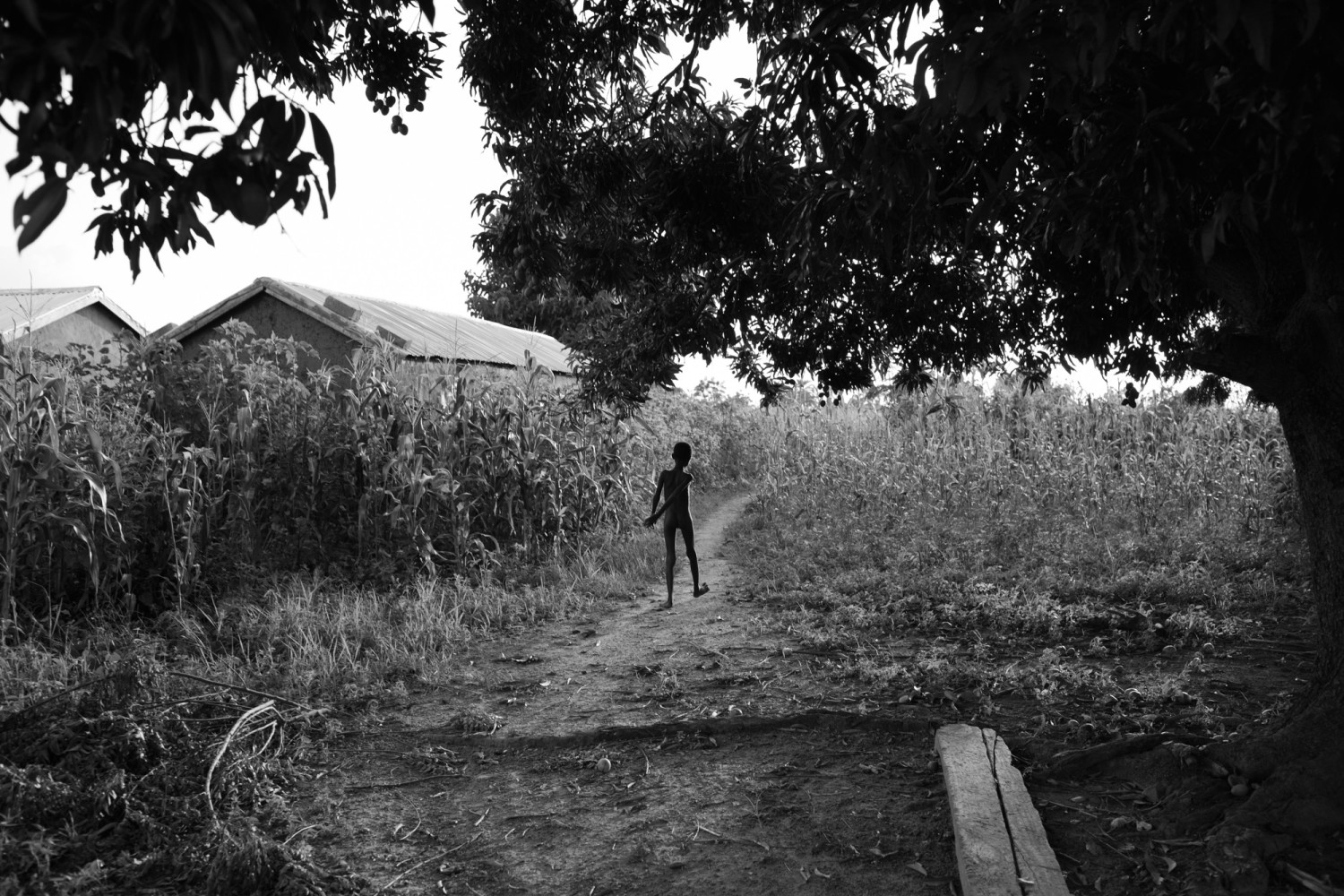read the full story
read the full story
Faith as a healer
Around the world, an overwhelming majority of people with psychosocial disabilities are living in poverty, poor physical health, and are subject to human rights violations. Not only does living with a mental health problem mean one will probably become destitute; poverty can exacerbate, or even cause, mental health problems. Making matters worse, care is almost always substandard in regions struggling with poverty.
In Togo, a large majority of people living with a psychosocial disability use traditional medicine, cannot afford drugs, and do not have access to mental health practitioners.
Handicap International works with the Ministry of Health, public and private institutions and user groups in Togo, to improve care and support options for people living with psychosocial disabilities.
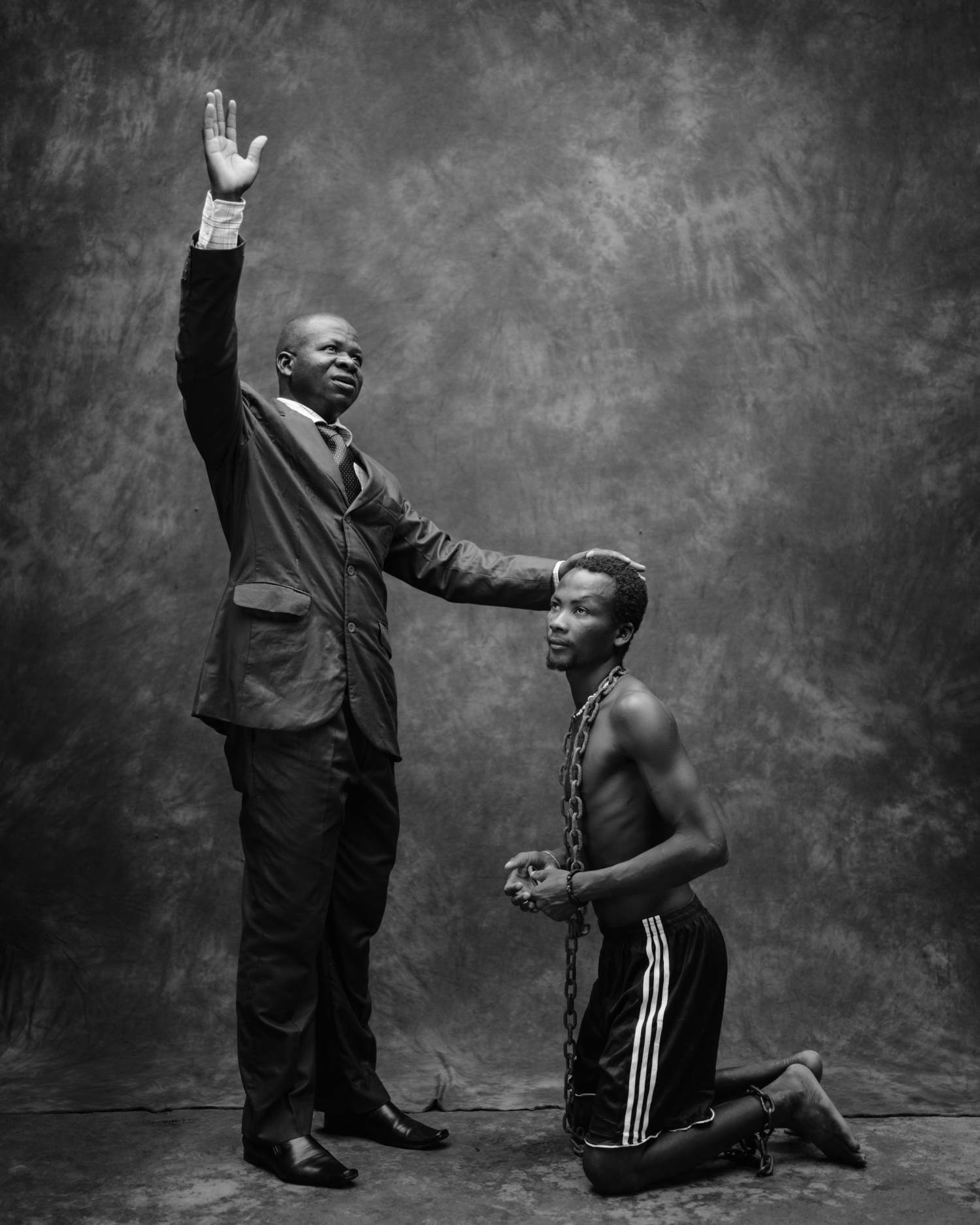
“Whatever your illness is, if you come here, we pray…”
Pastor Lare Damitote Bertrand prays over Lare Bédagoa, who is living with a mental health problem and is usually chained to a tree inside the grounds of The Pentecostal Church of Bokiccenag. His mother brought him to the church to have him healed.
One of the church’s primary functions is to pray to resolve the problems of the congregation, ranging from financial difficulties to severe illnesses.
In institutions around the world, people living with mental health problems are restrained. Where resources are thin, such as in northern Togo, chains are often used to prevent them from hurting themselves, others, or running away. On this day approximately 15 adults living with mental health problems were chained to trees or posts, while they waited to be cured through prayer. Some had been constrained for more than a year.
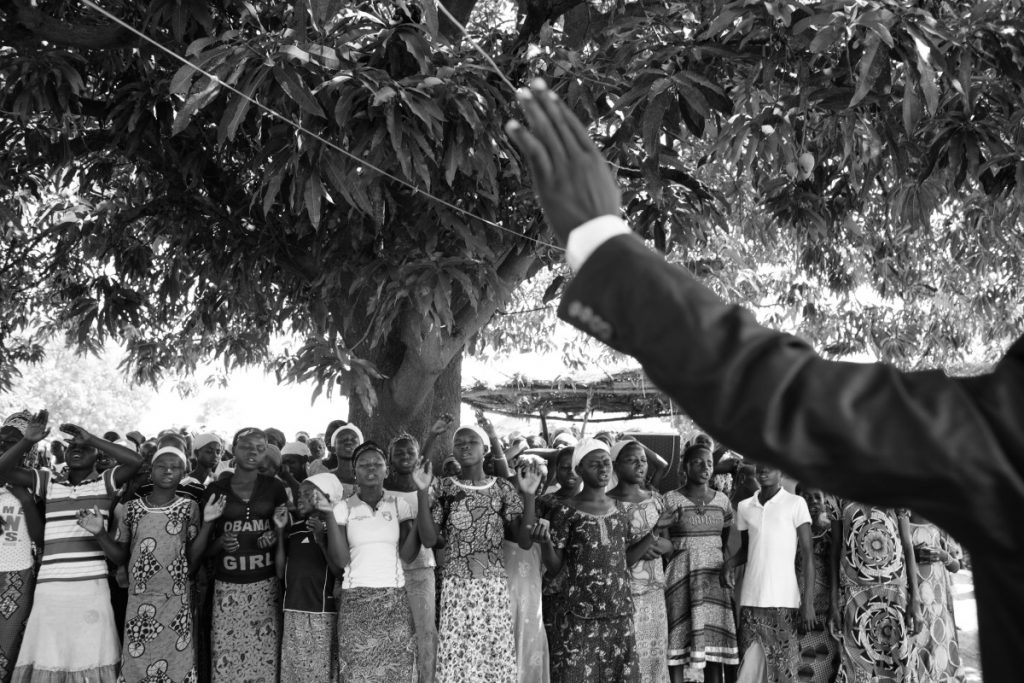
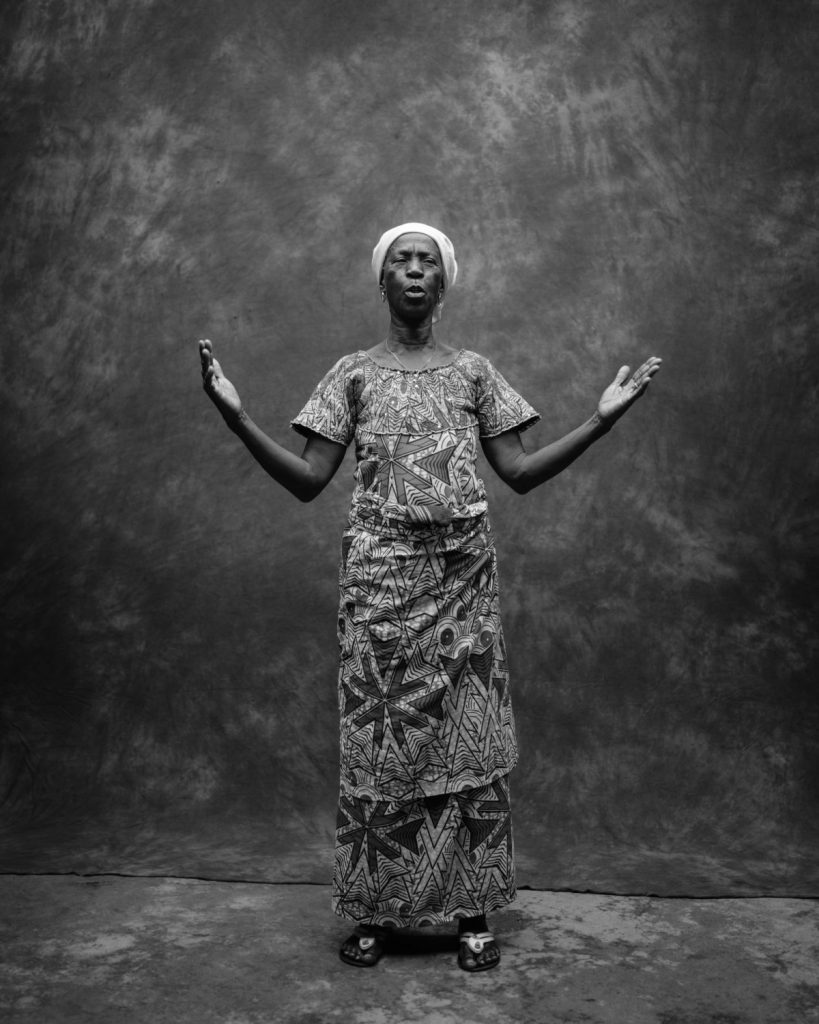
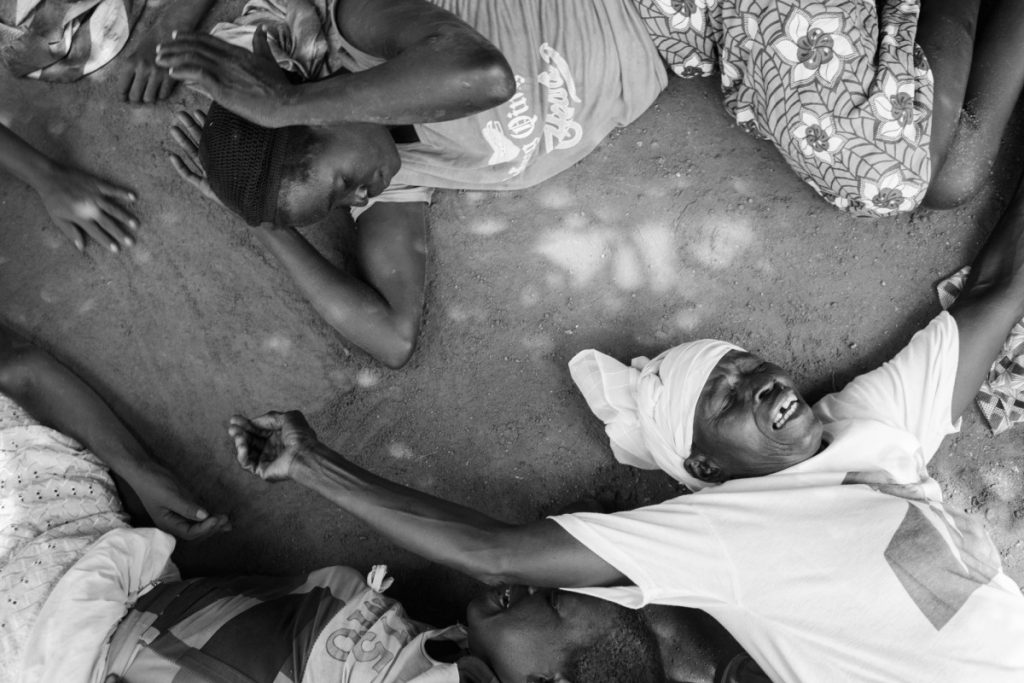
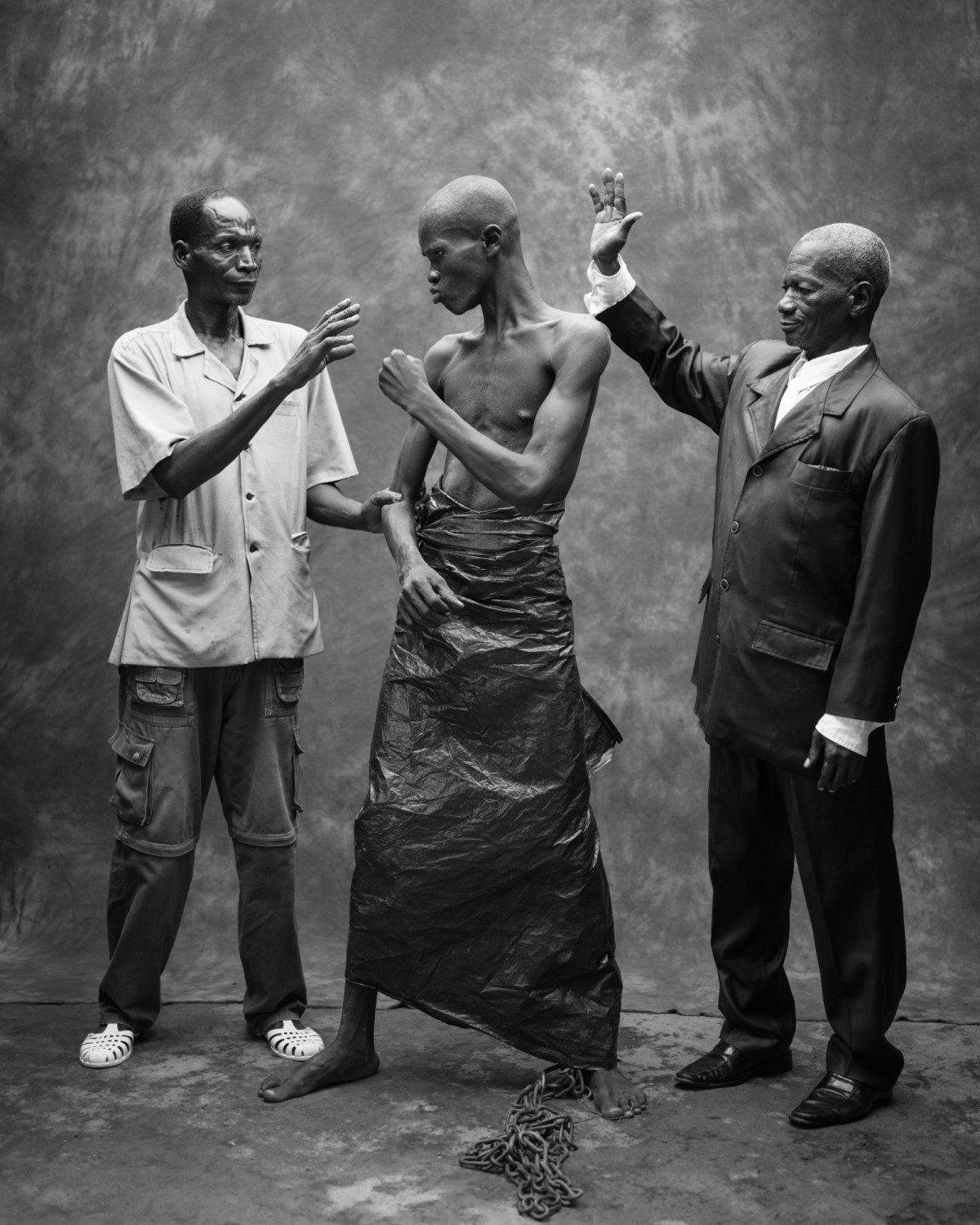
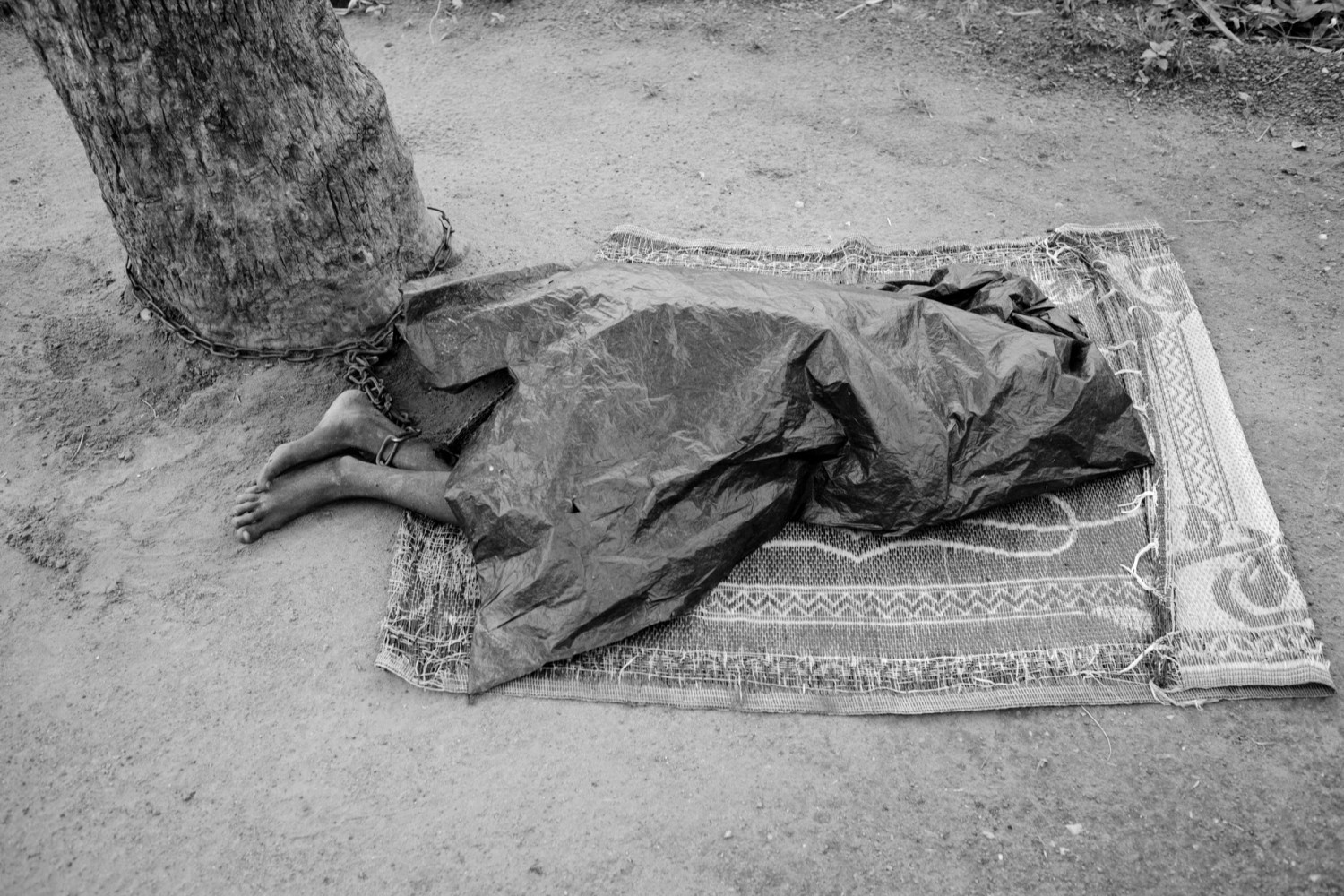
“When my illness began, I was attached with oxen chains.”
Yendani Mathieu has been brought to The Pentecostal Church of Bokiccenag by his mother for healing. He spends his days chained to a tree inside the grounds of the church.
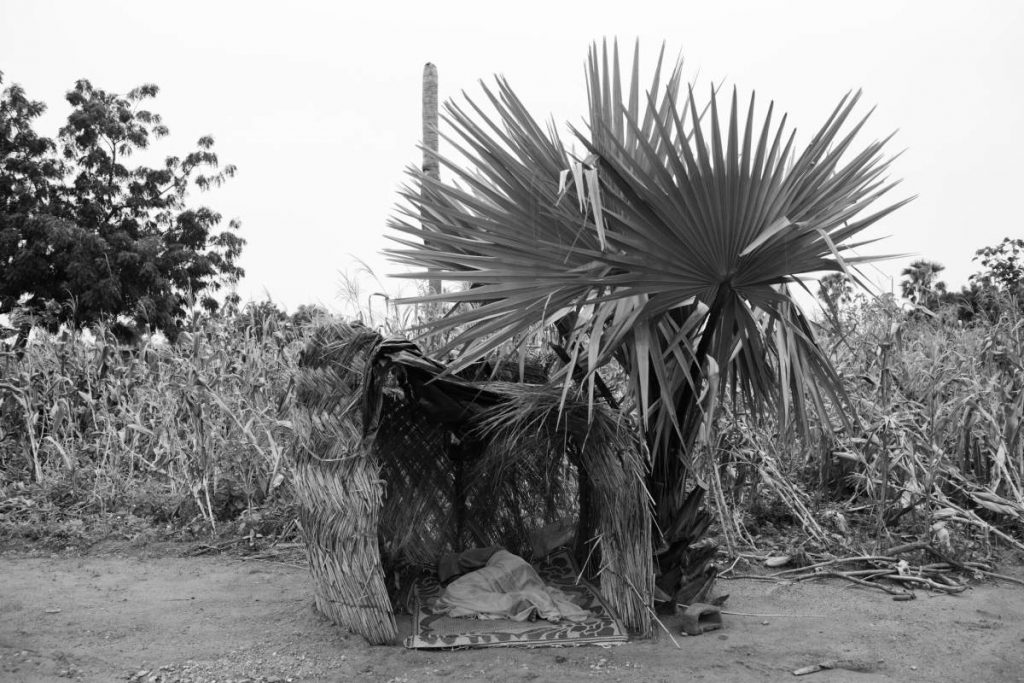
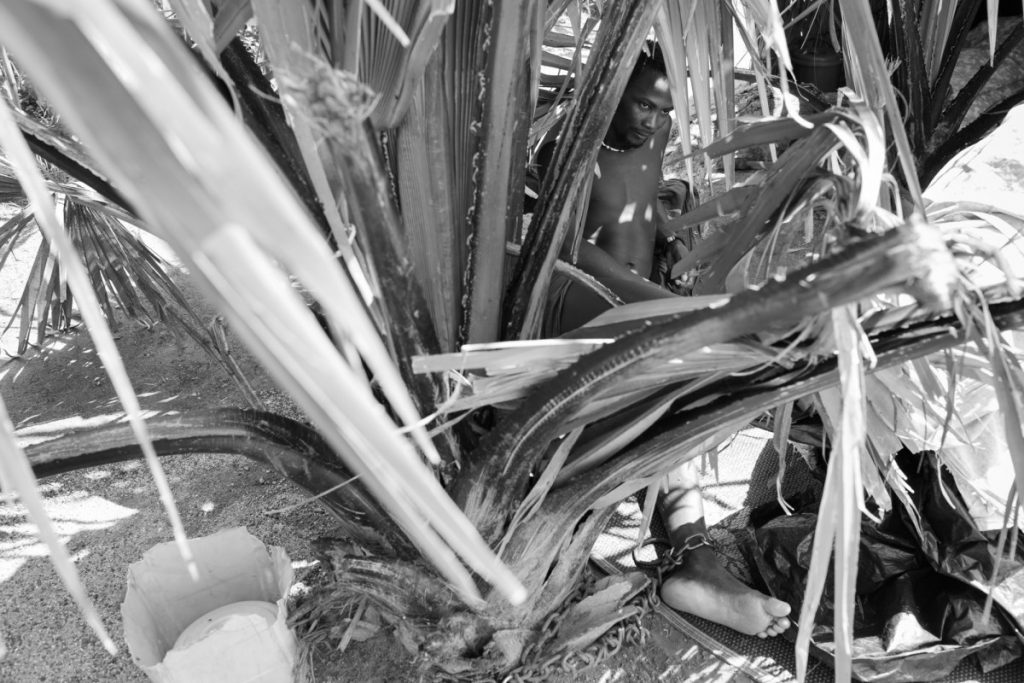
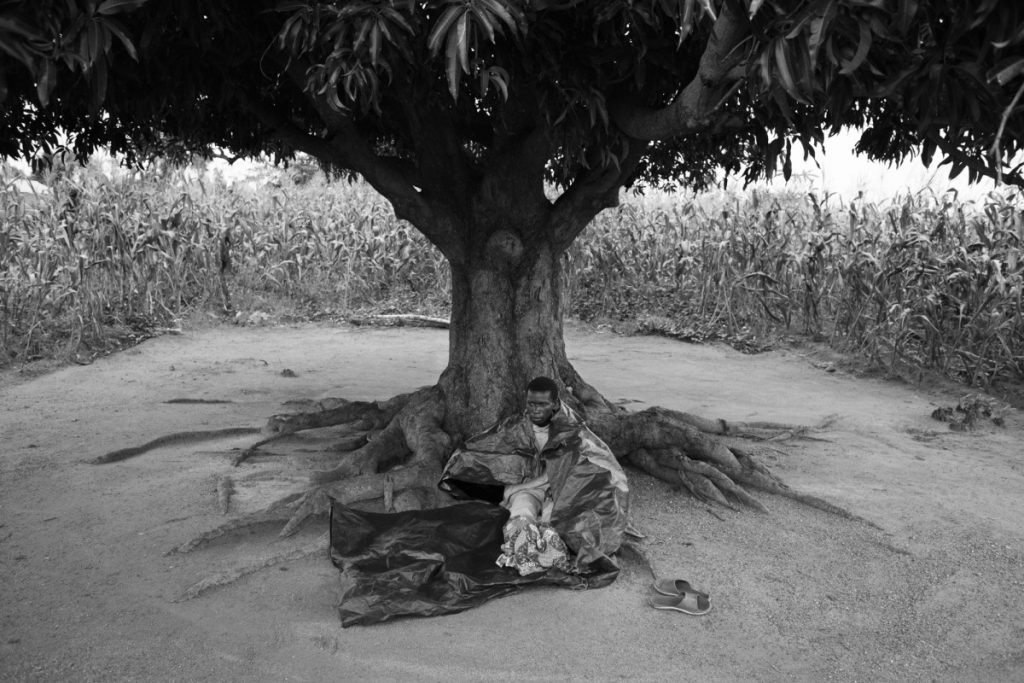
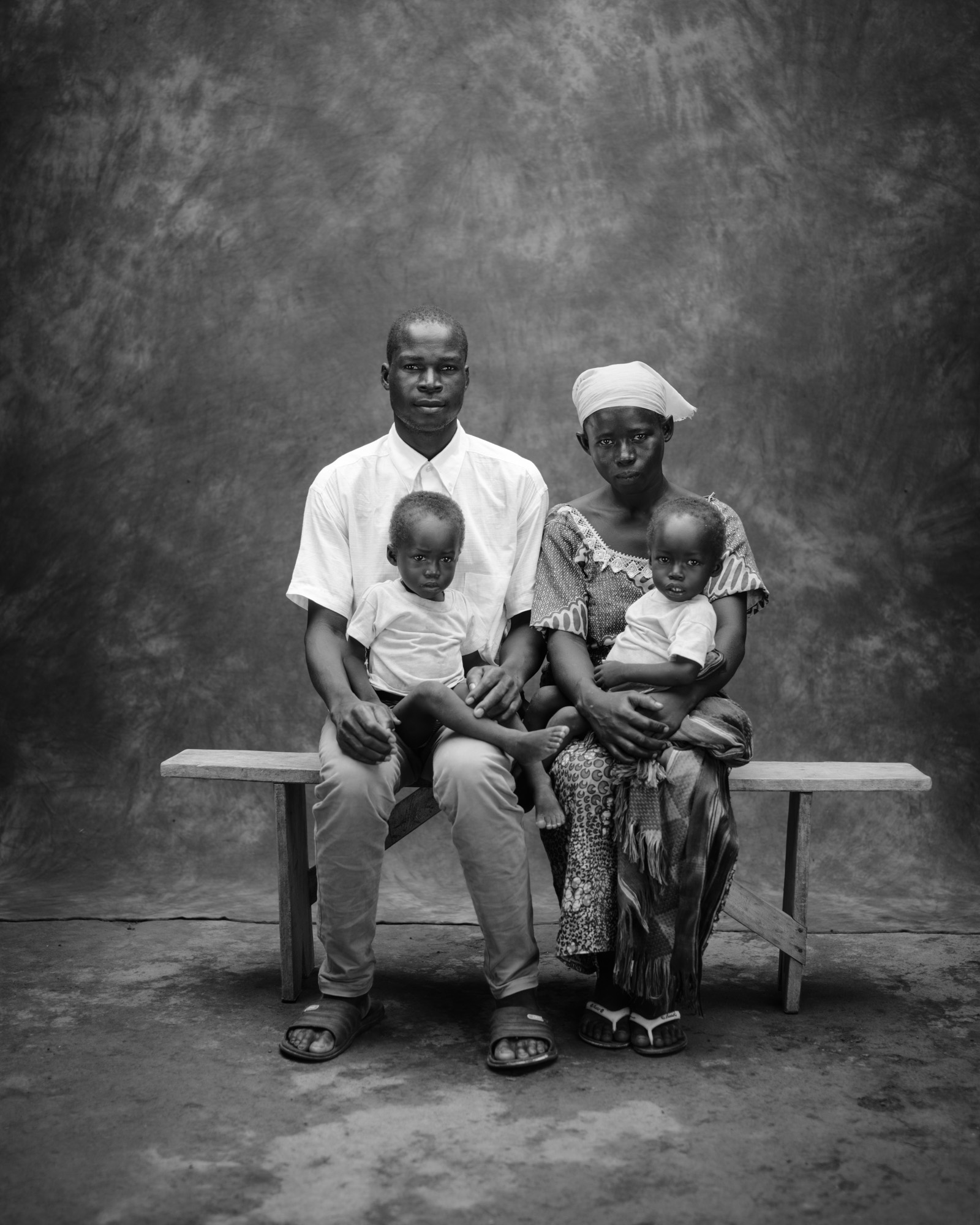
“Suddenly I had a feeling of fear.”
Kandjine Laré and his wife Kinam came with their two children to The Pentecostal Church of Bokiccenag, seeking healing through prayer. He says he is now healed: “We are here in the house of God. I had gone mad, I went to the hospital to treat me in vain, and then I went to traditional healers but it still nothing. But I learned that they could treat me here and that’s why I came. When I arrived, they have to tie me here. Once I even cut my ties and I fled, but I was caught. But now I’m fine by the prayers, and I live here waiting to go back home very soon. When I was sick, I completely undressed, but nothing of that now.”
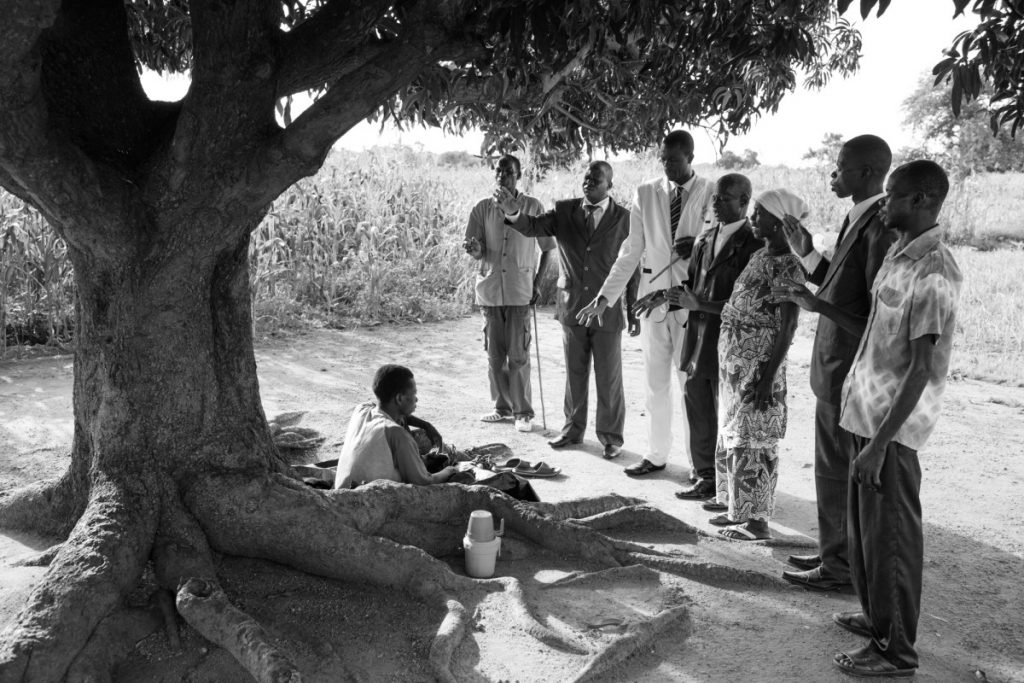
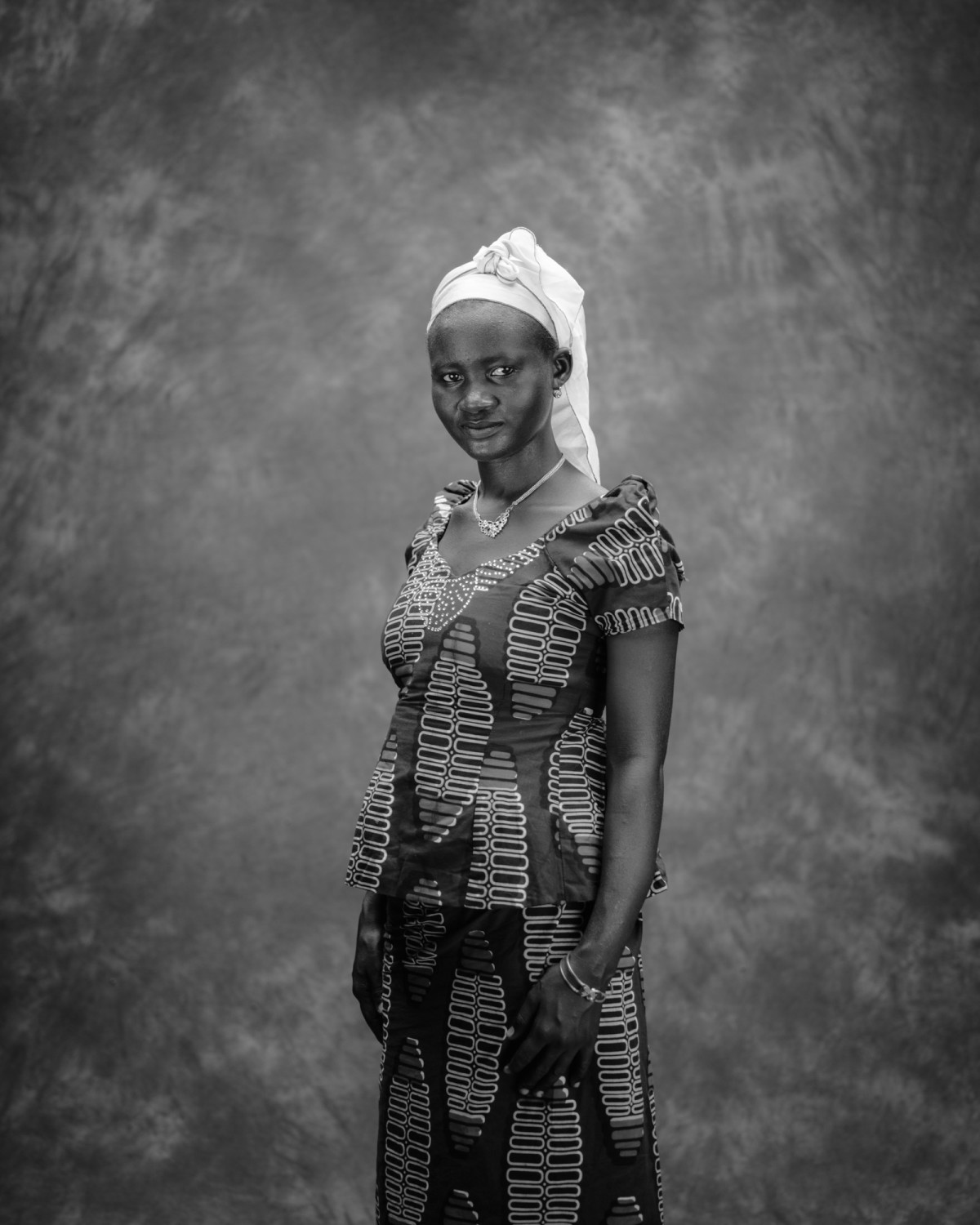
“I needed chains because I was doing everything wrong, and I destroyed everything I found on my way. But now that I’m detached, I realize that I am correct, and I no more do wrong things. I am more willing to arrange things, than to destroy them.
I hope I will never be attached again, because being attached is not a good thing. I expect that God will improve my health, and he will give me health so that I can live normally.“
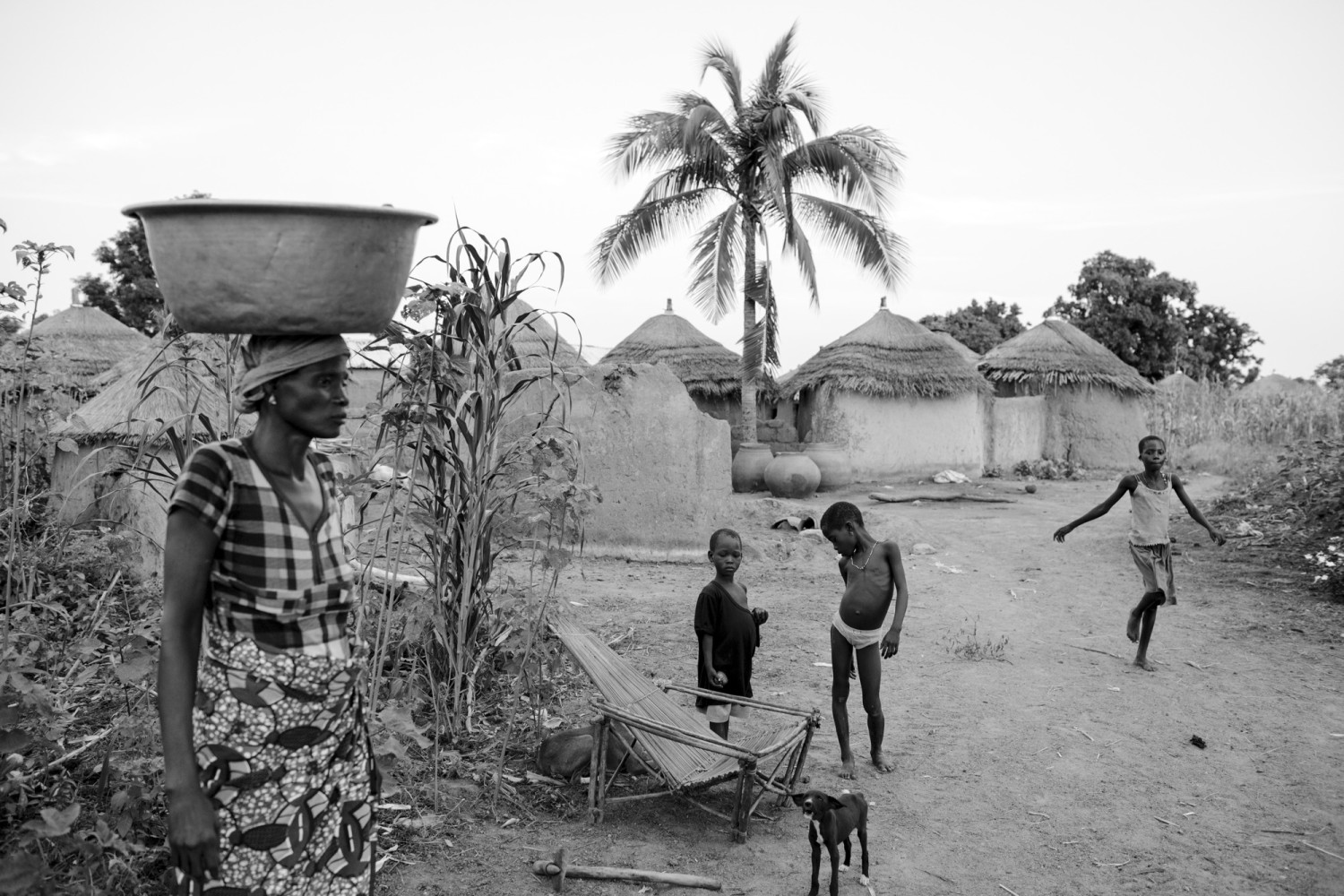
The curse of poverty
Poverty can exacerbate, or even cause, mental health problems. The village of Tantouagou is located in northern Togo, one of the poorest regions in the country. Many mental health professionals say poverty contributes to the high number of people living here with mental health problems.
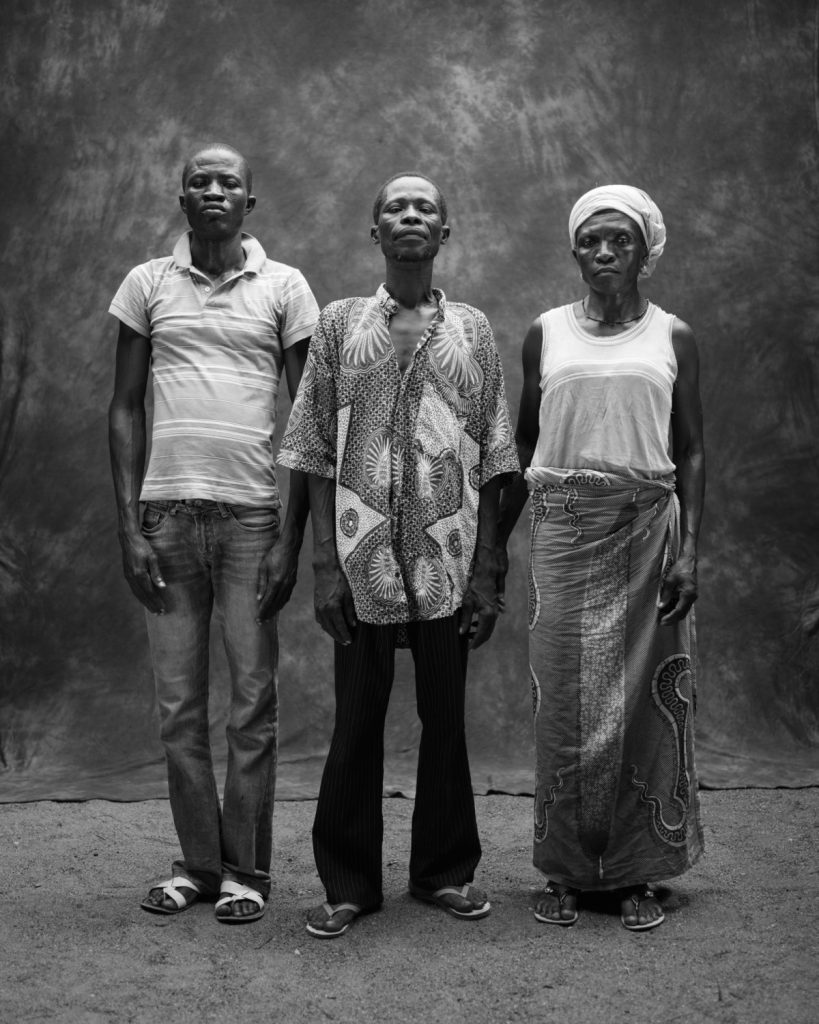
Tadja Lenle is a farmer suffering from mental illness. He was able to get temporary relief through treatments at a nearby hospital, but doesn’t have the money to continue them indefinitely. Without the medicine, he quickly relapsed. Though he’s cared for by his brother and sister-in-law, he’s weighed down by the reality of his condition:
“I hear voices and I have the impression that something strikes me…I’ve undergone rituals and I’ve made sacrifices with traditional healers without success. I have also been to the hospital for medical treatment…All my life is only suffering because I am no longer the person I was.”
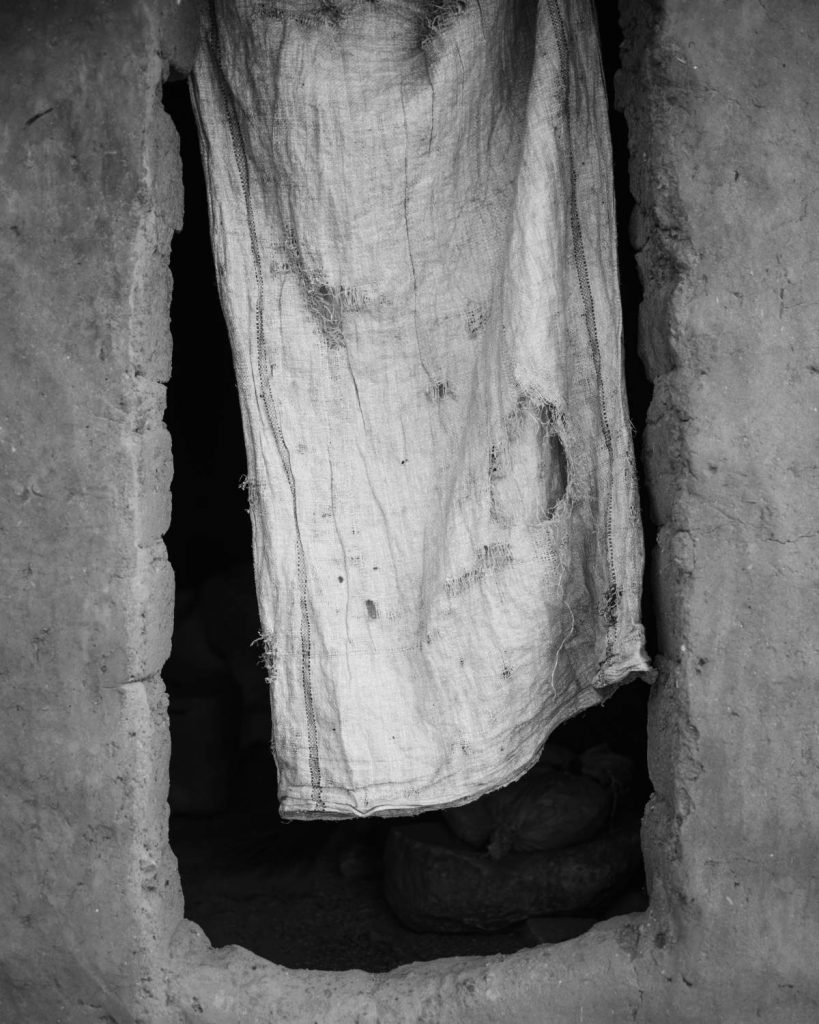
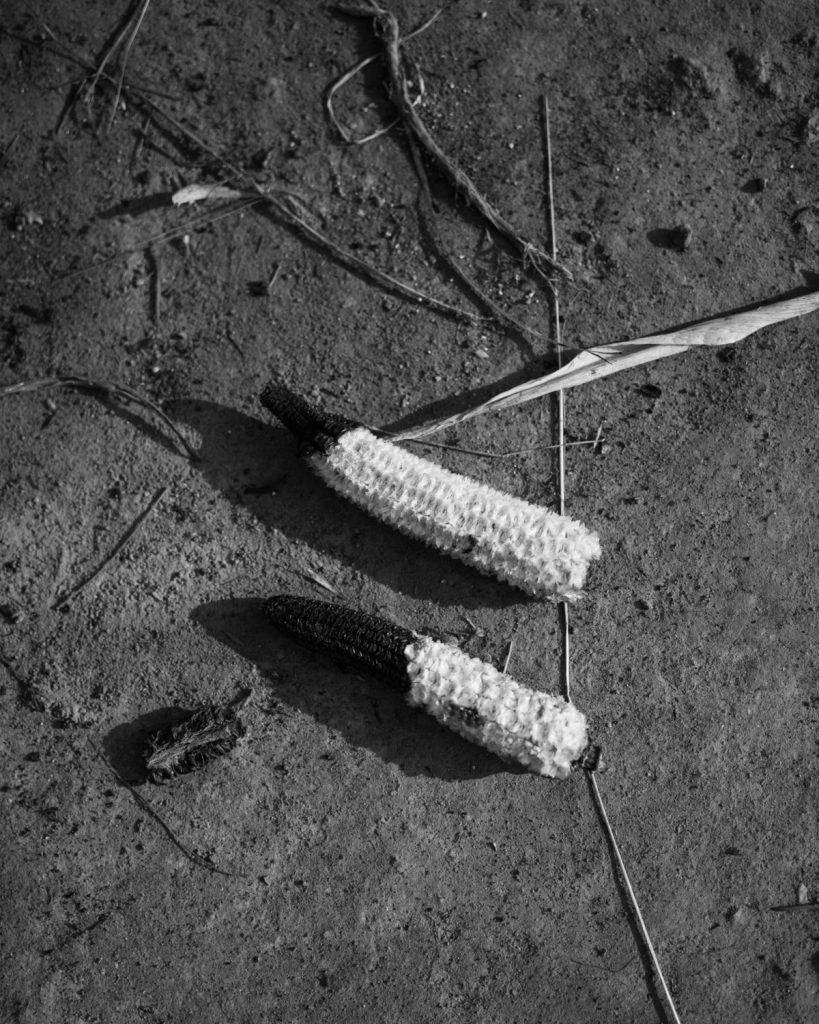
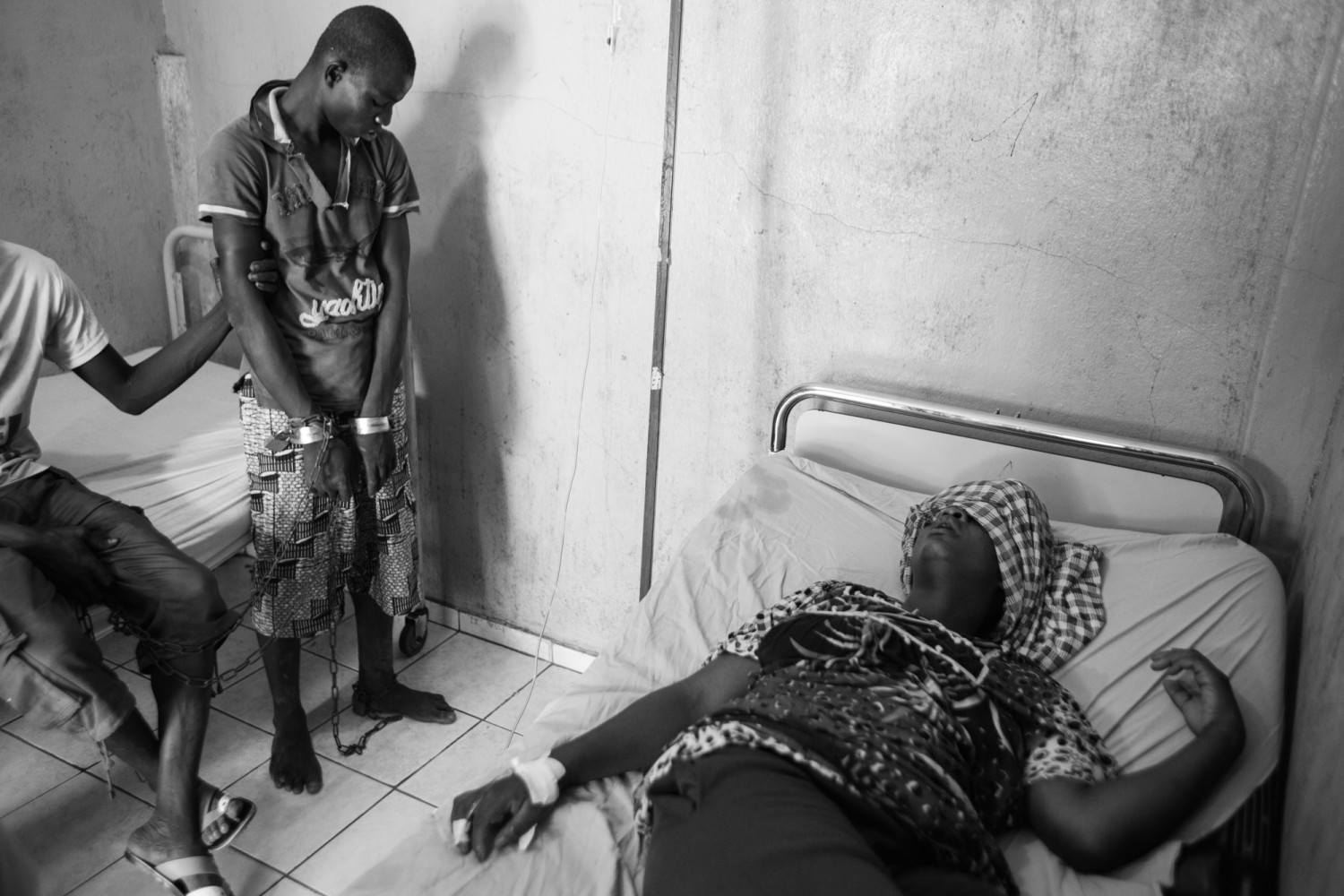
The possibility of hope
People living with mental health problems are often brought to the center in chains. If patients are violent, they may have to be sedated. The family members that bring them are often desperate for help and struggling to cope.
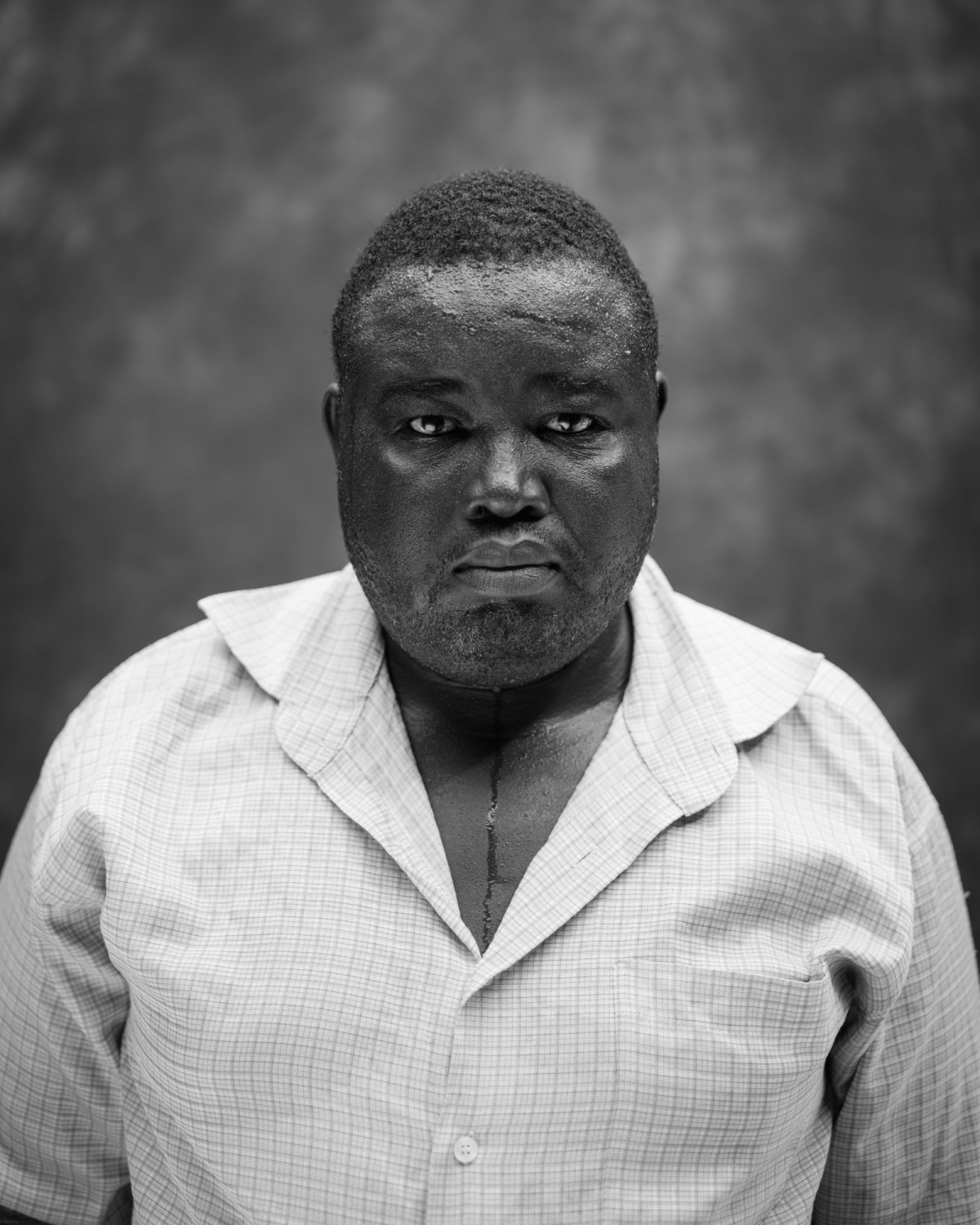
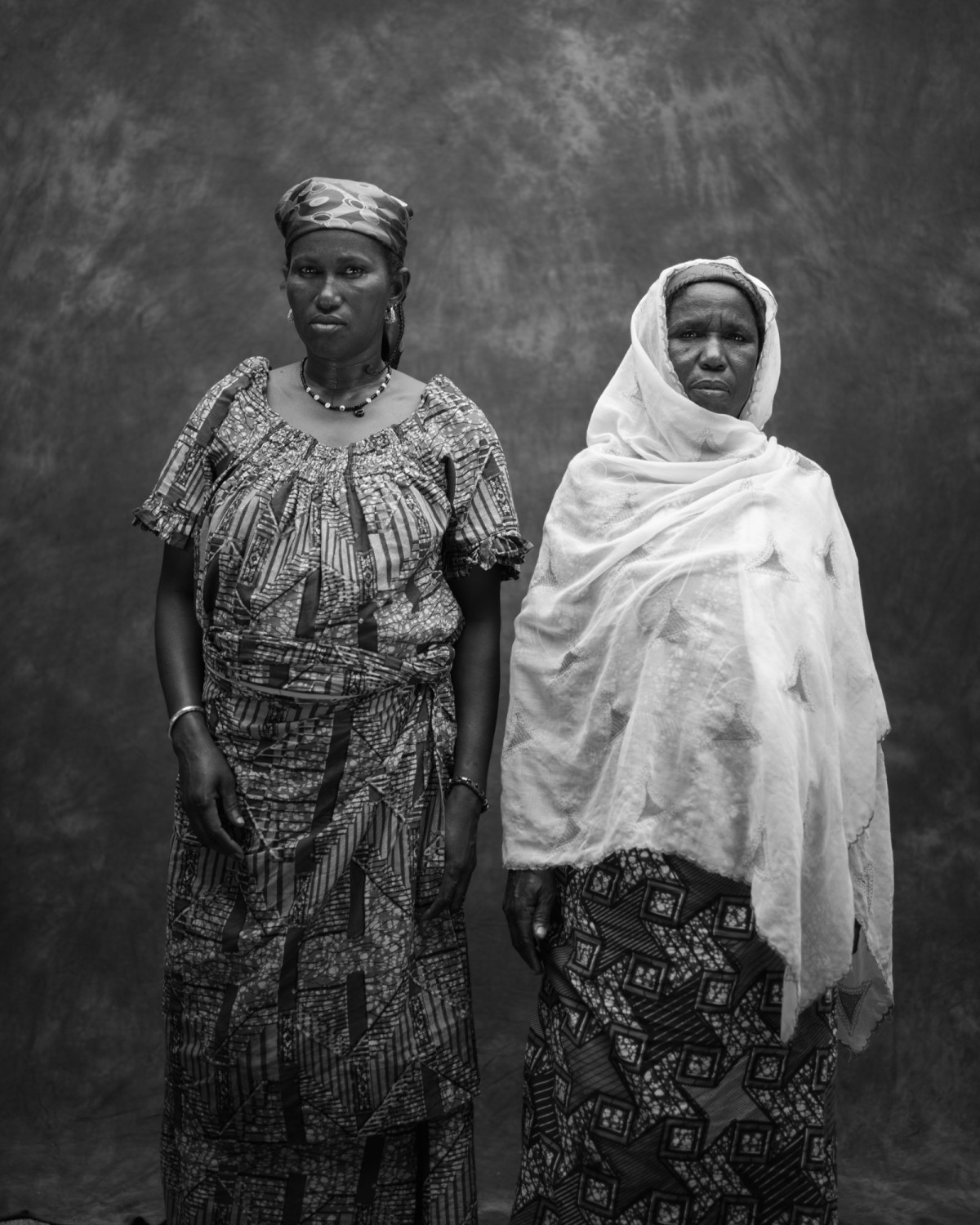
Yacouba Salamatou is a farmer in the village of Sibor Toti, northern Togo, who lives with a mental health problem. She recalls the sudden arrival of her disease, and longs for a return to a normal life with her family.
“I hope I will have treatment for a better future. I want to take care of my children who are in Lomé [Togo’s capital city].”
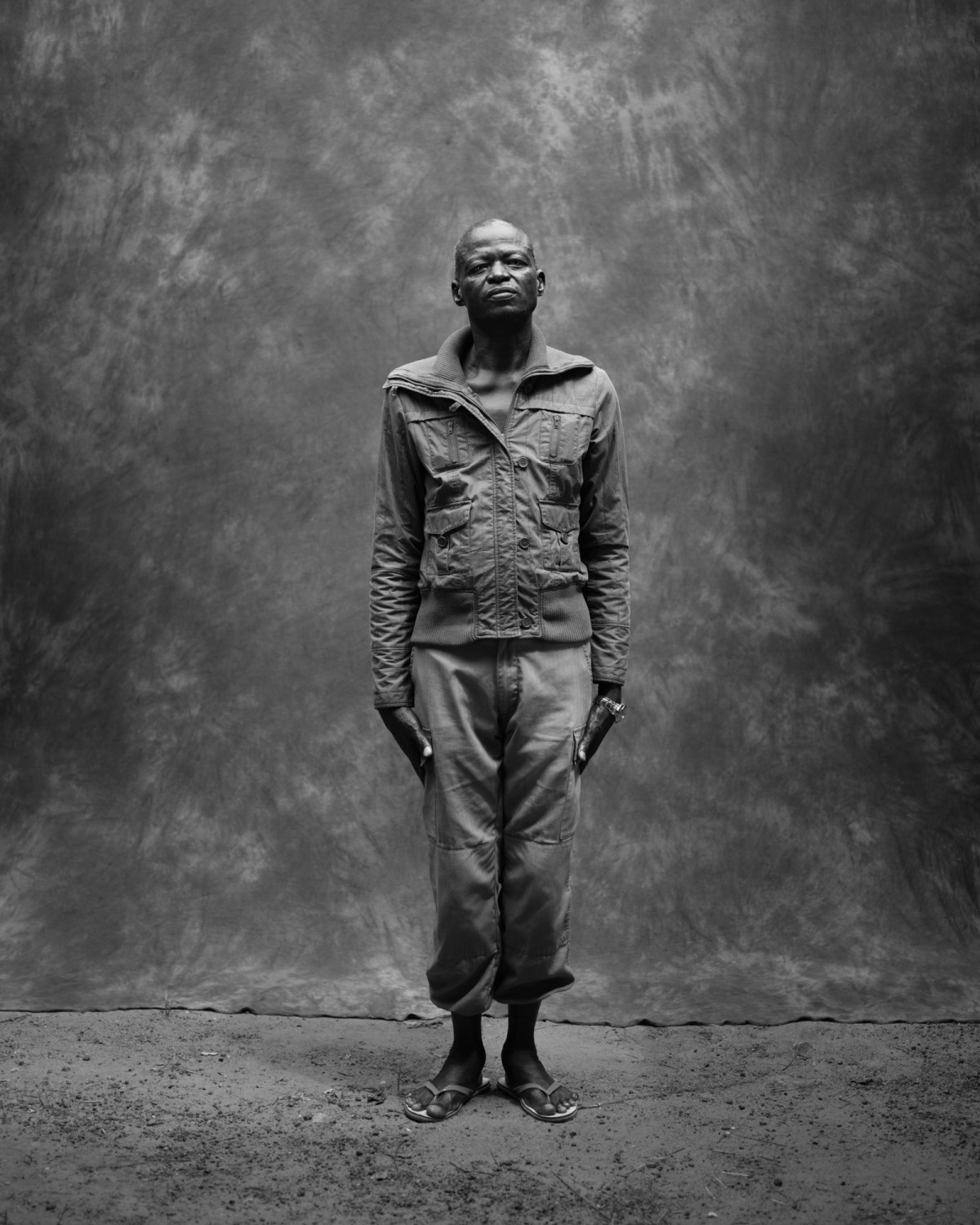
“When he has an attack, he reacts like a crazy person, and I am not safe, neither are our children. I often go to join my father and then, when he calms down, I come back.” Says Kanyéba, describing Dampotine’s illness. “Many people make fun of him. Sometimes he gets out, especially at night, and he goes into people’s homes to spoil their things. Sometimes he is beaten for destroying things…People make fun of me too. They often ask me why I still live with him. But I can’t leave him. We have three boys, two at the university, and the last in college. I think about their future.”
Kanyéba, a tailor and now the breadwinner, feels weighed down by this burden: “I take care of him like a son…It’s really difficult, because I can’t compare myself to my colleagues. We are all tailors and I work more than many of them, but we do not have the same level. Because there are some whose husbands help them, while I used all my money for my children and my husband. It’s really hard… I hope everything will be better in the future, and this disease will not affect me, and none of my children will suffer. I want my husband to feel better too.”
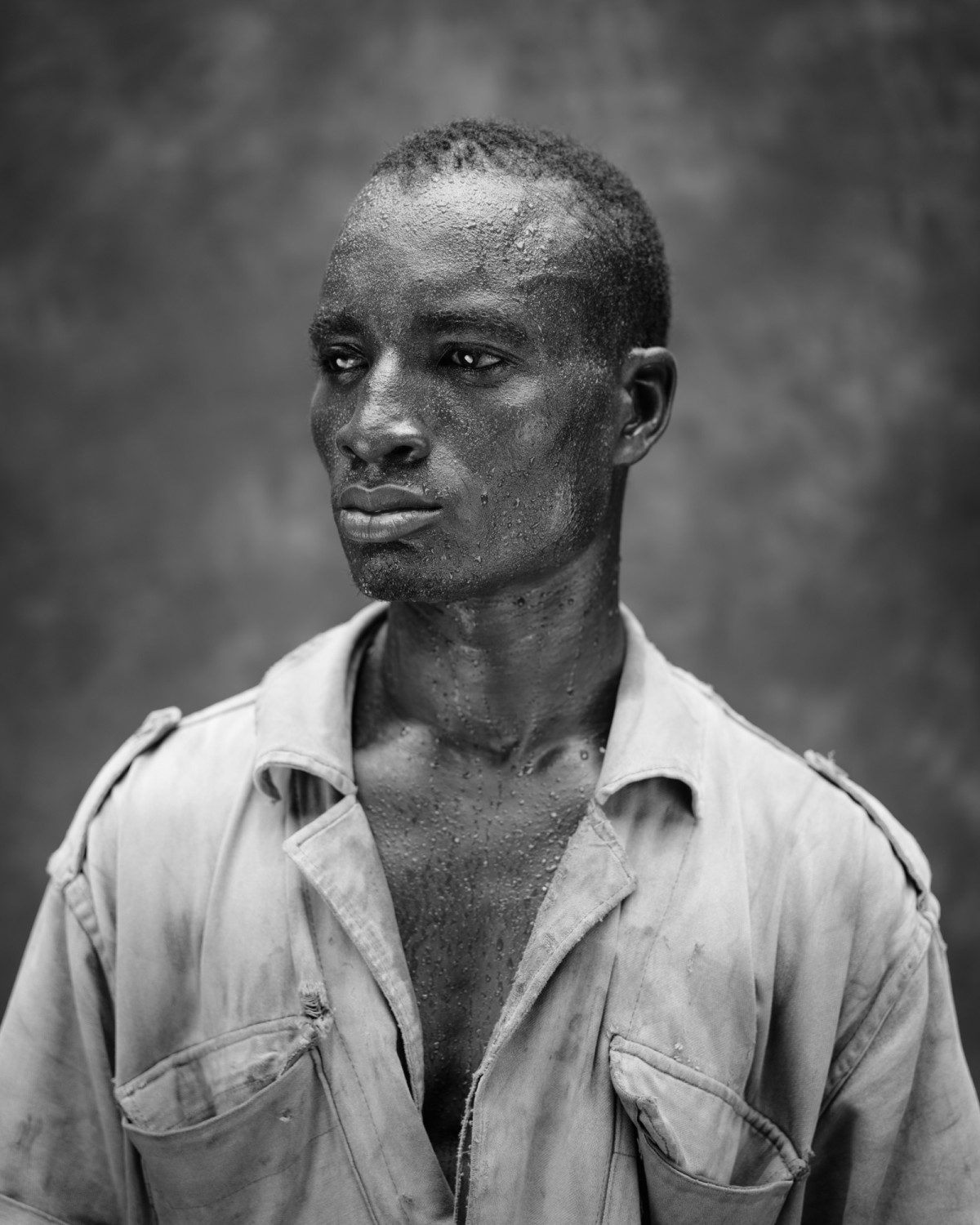
For many in the region, the treatments they receive here can enable them to keep their jobs and independence. Lamboni Lare is a mechanic living with a mental health problem. The medication he receives at the Centre allows him to continue working.
“I am here because I was not going well mentally. Before I could not sleep, and sometimes I go out for a walk without any desire to return. Sometimes I spoke disorderly. But since I’m having the treatment, I’m fine…The Centre has helped me with treatments. When I had no medication, it really bothered me. But now that I take it, I feel myself changing. I could not even work before treatment. Now I work well without problem from morning until evening.”
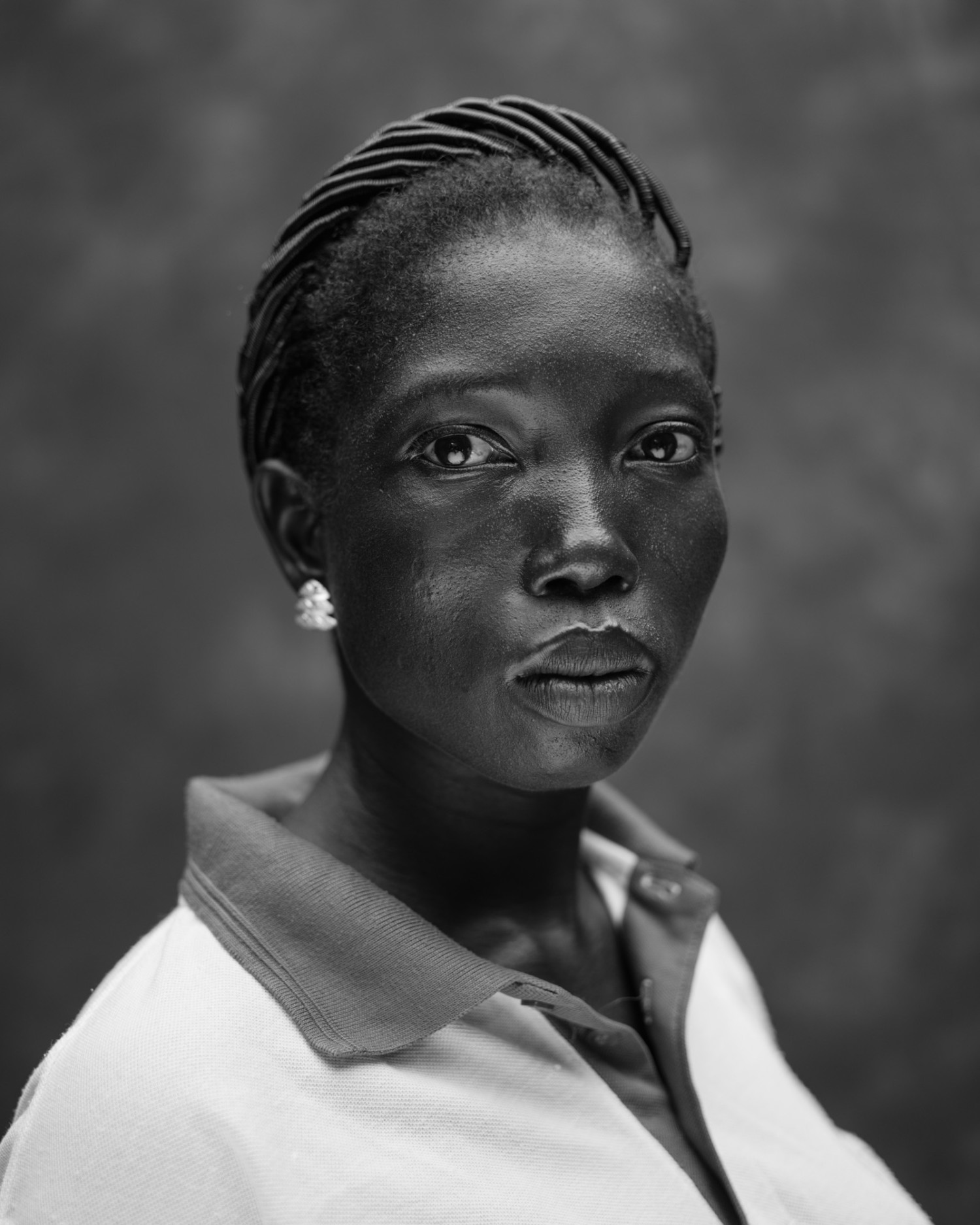
“There are a lot of people suffering”
Saguedin Kpiémame is a Community Health Worker in the village of Sibor Toti, in northern Togo, recruited by Handicap International to monitor people living with mental health problems in their homes. She works to take care of people with mental health problems and epileptic patients in her community, and reaches out to families to tell them about the existence of treatment at the health center.
“I want to participate in the development of my community. There are a lot of people suffering from mental health problems, so we have to sensitize the community so that people living with mental health problems can go to the center, receive help, and then they can work, and help the development of the community.”
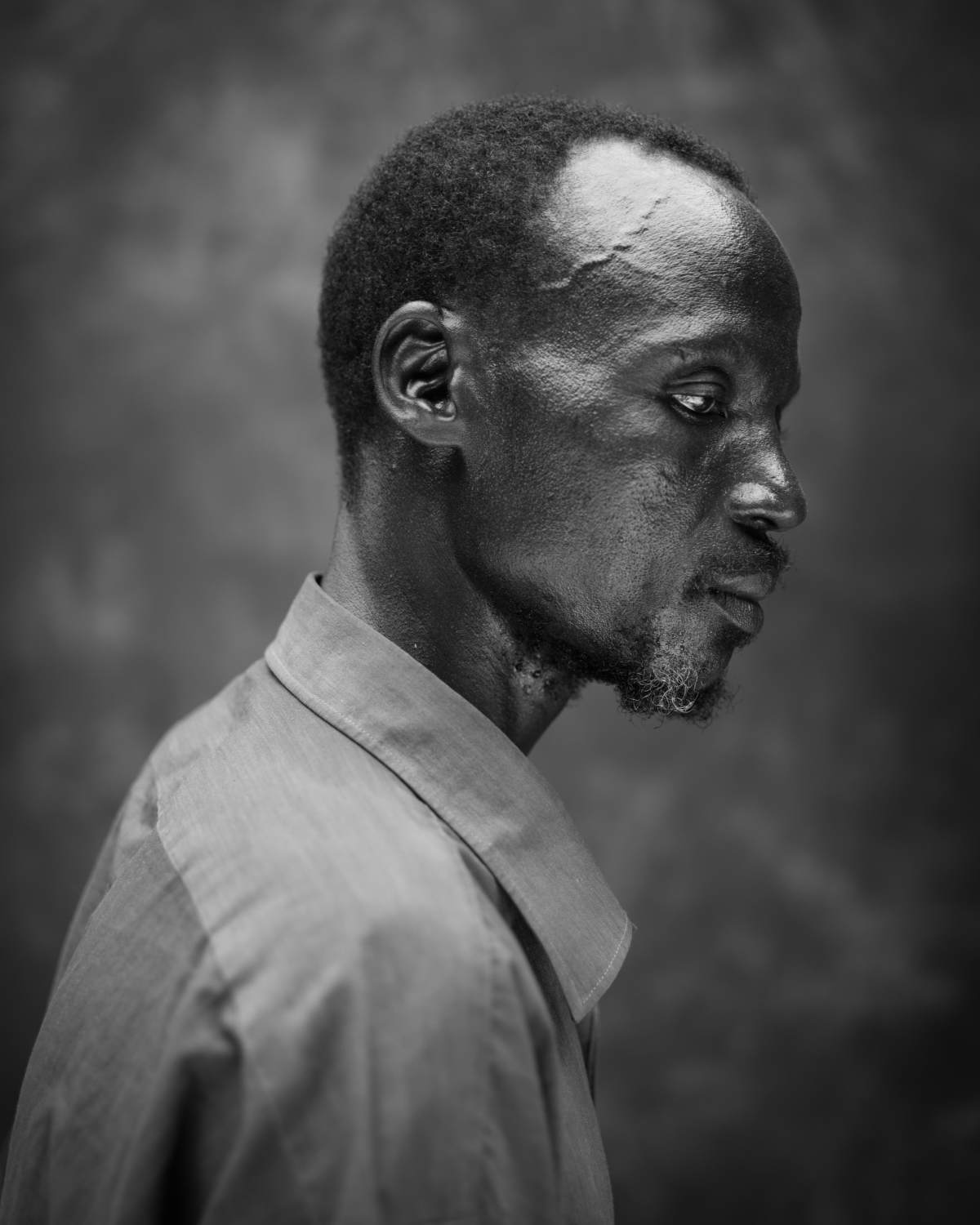
Sankalengue Baraon also receives treatment at the Centre. He used to be a mason, but had to stop working due to his disorder:
“My mental disorders do not lead me to hurt people. It just makes me sing, and I sing for long times. Sometimes it makes me walk long distances. Sometimes I hear voices, and they give me instructions. For example they can point me to go into a strange house at a certain time to have food, and when I go, I actually find people eating and I have my share.”
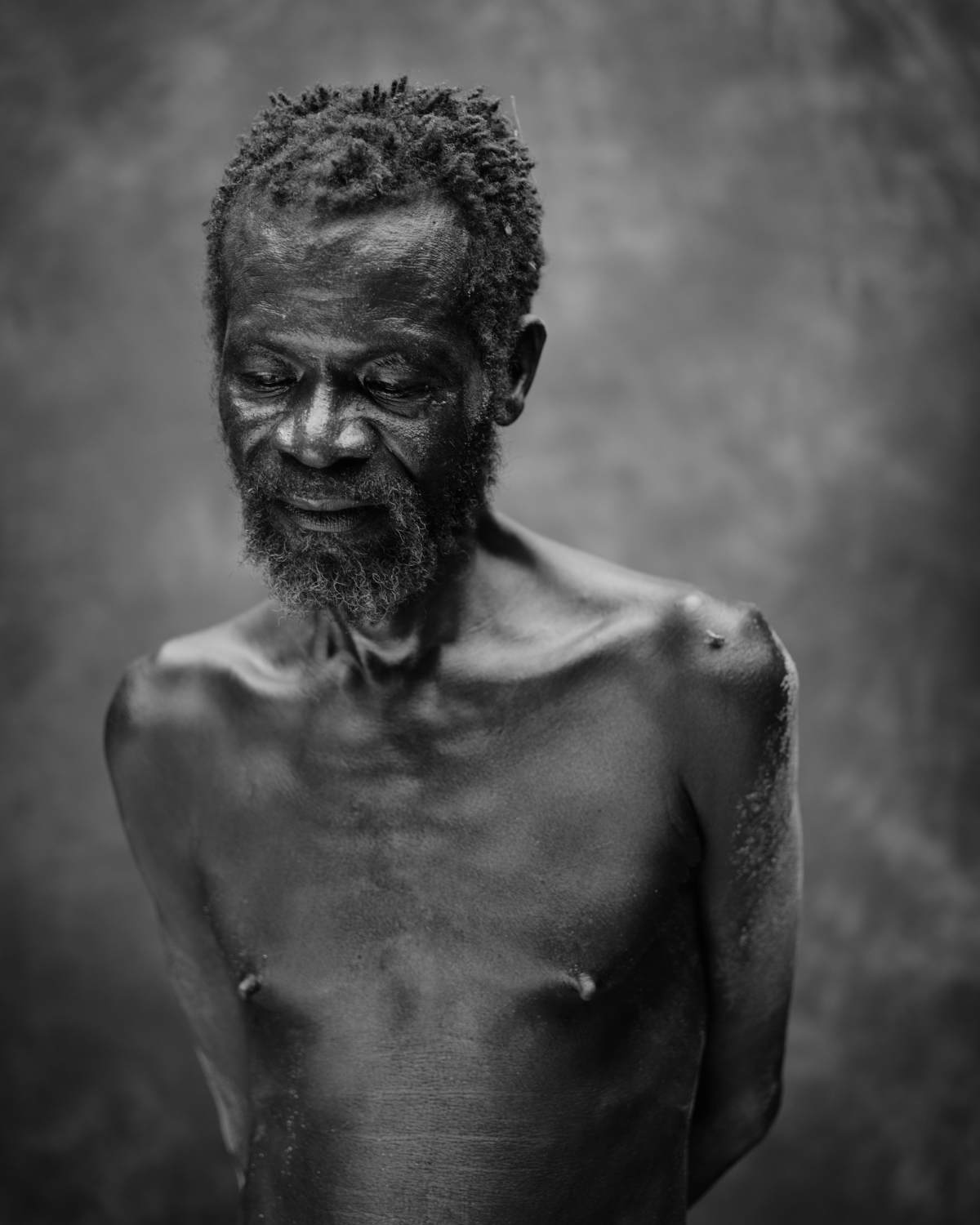
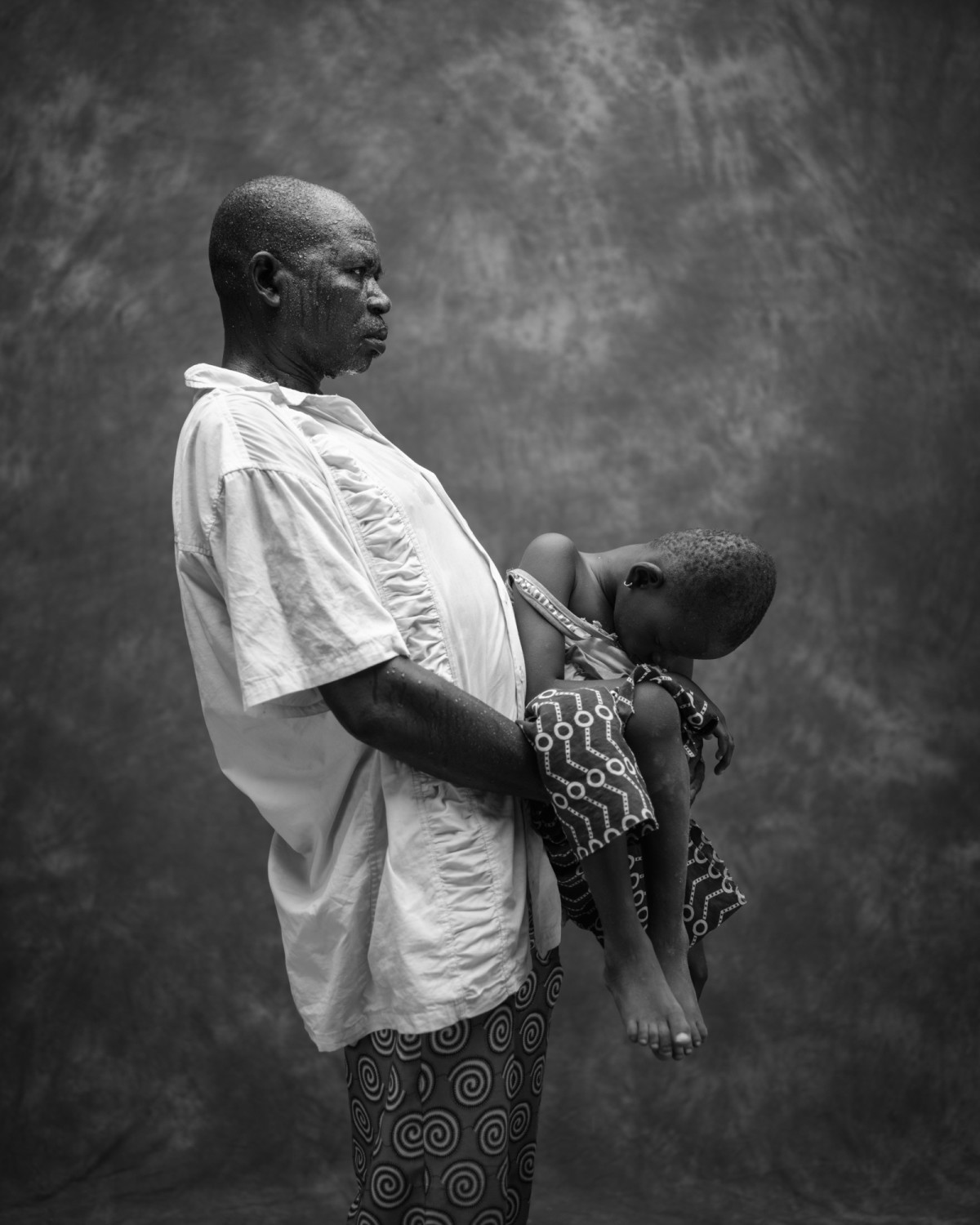
“Since my daughter was born, she does not speak or walk…We can’t know what happened to her…Our biggest challenge is to get a good treatment so we could change her life. I am financially exhausted… seeing her like that really makes me pity. Girls of her age are not like that and it tears me to see her like that.”
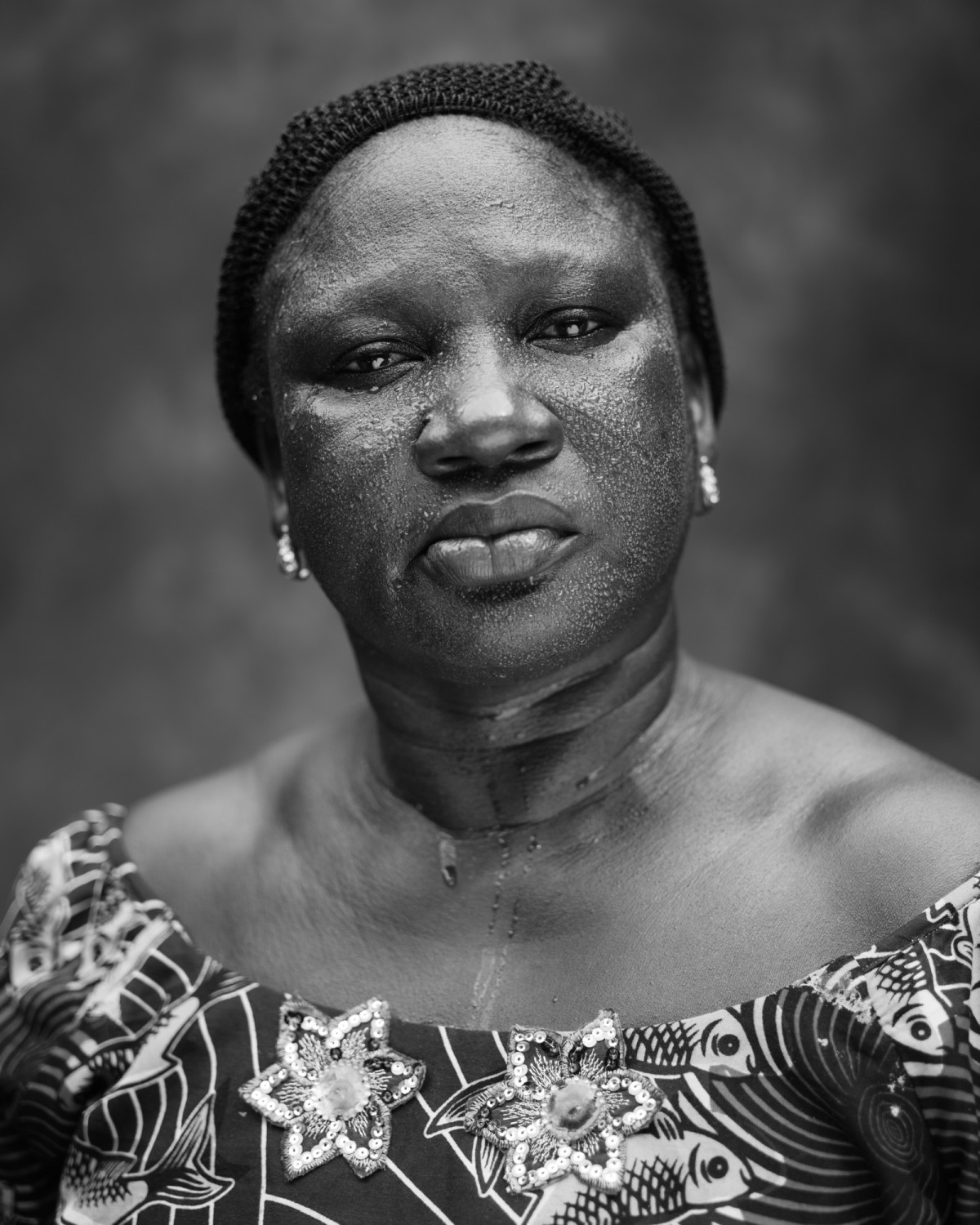
Another one of the Centre de Sante Mentale’s goals is to teach patients a life skill, that they can use to earn a living. Kolani Kondougue came for treatment and was given medication. When she became healthy, she learned how to make soap to sell in the community.
“I can say that I have no more challenge, because I sell things at the market and I live a good life with my children and my husband… All I want is to have health. This is precisely why I regularly come to the health center to take my medication. I do not want this disease to come back in my life again.”
